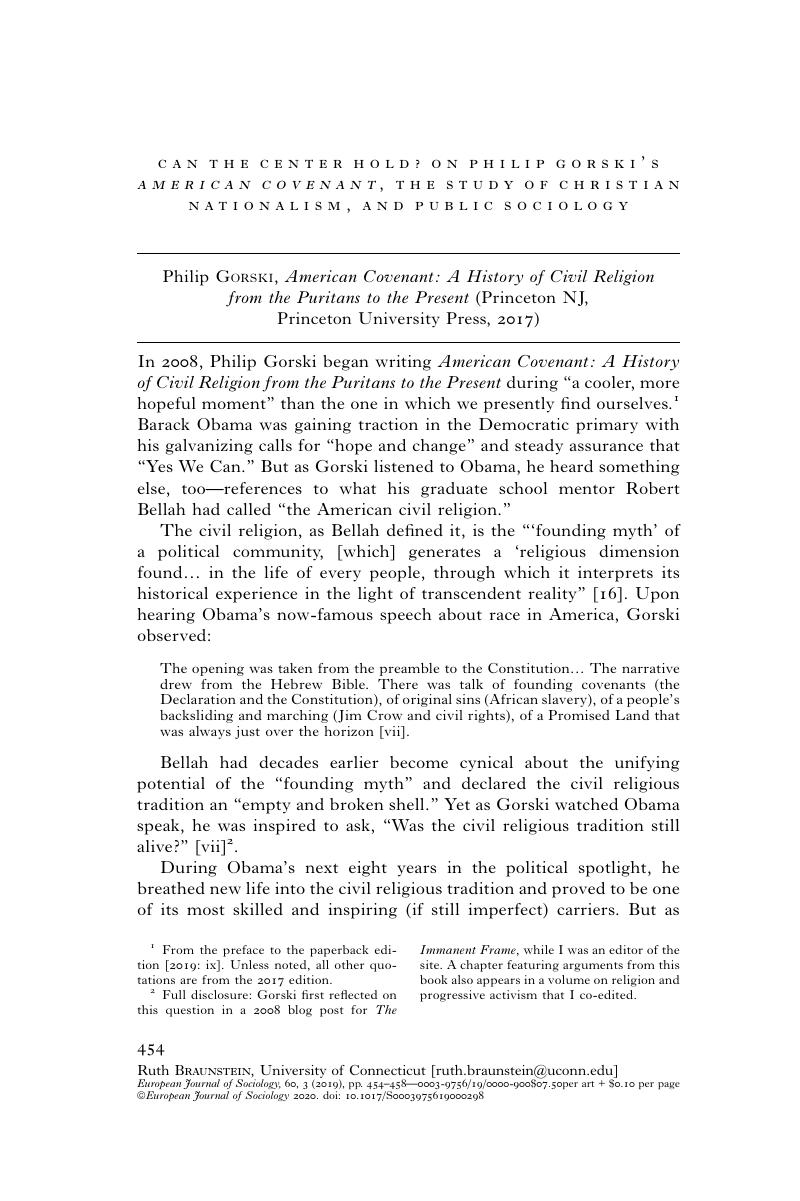Article contents
Can the center hold? On Philip Gorski’s American Covenant, the study of Christian nationalism, and public sociology - Philip Gorski, American Covenant: A History of Civil Religion from the Puritans to the Present (Princeton NJ, Princeton University Press, 2017)
Published online by Cambridge University Press: 14 February 2020
Abstract

- Type
- Book Reviews
- Information
- European Journal of Sociology / Archives Européennes de Sociologie , Volume 60 , Issue 3 , December 2019 , pp. 454 - 458
- Copyright
- Copyright © A.E.S. 2020
References
1 From the preface to the paperback edition [2019: ix]. Unless noted, all other quotations are from the 2017 edition.
2 Full disclosure: Gorski first reflected on this question in a 2008 blog post for The Immanent Frame, while I was an editor of the site. A chapter featuring arguments from this book also appears in a volume on religion and progressive activism that I co-edited.
3 From the preface to the paperback edition [2019: ix].
4 Some recent examples include Ruth Braunstein, 2017, “Muslims as Outsiders, Enemies and Others: The 2016 Presidential Campaign and the Politics of Religious Exclusion,” American Journal of Cultural Sociology, 5(3): 355-372; R. Braunstein, 2018, “A (More) Perfect Union? Religion, Politics, and Competing Stories of America,” Sociology of Religion, 79 (2): 172-195; Jack Delehanty, Penny Edgell and Evan Stewart, 2019, “Christian America? Secularized Evangelical Discourse and the Boundaries of National Belonging,” Social Forces, 97 (3): 1283-1306; Andrew L. Whitehead, Samuel L. Perry and Joseph O. Baker, 2018, “Make America Christian Again: Christian Nationalism and Voting for Donald Trump in the 2016 Presidential Election,” Sociology of Religion, 79 (2): 147-171; Andrew L. Whitehead and Samuel L. Perry, (Forthcoming), Taking America Back for God: Christian Nationalism in the United States (New York NY, Oxford University Press).
- 1
- Cited by


